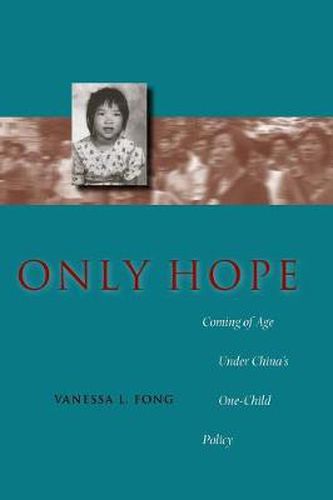Readings Newsletter
Become a Readings Member to make your shopping experience even easier.
Sign in or sign up for free!
You’re not far away from qualifying for FREE standard shipping within Australia
You’ve qualified for FREE standard shipping within Australia
The cart is loading…






The first generation of children born under China’s one-child family policy is now reaching adulthood. What are these children like? What are their values, goals, and interests? What kinds of relationships do they have with their families? This is the first in-depth study to analyze what it is like to grow up as the state-appointed vanguard of modernization. Based on surveys and ethnographic research in China, where the author lived with teenage only children and observed their homes and classrooms for 27 months between 1997 and 2002, the book explores the social, economic, and psychological consequences of the government’s decision to accelerate the fertility transition.
Only Hope shows how the one-child policy has largely succeeded in its goals, but with unintended consequences. Only children are expected to be the primary providers of support and care for their retired parents, grandparents, and parents-in-law, and only a very lucrative position will allow them to provide for so many dependents. Many only children aspire to elite status even though few can attain it, and such aspirations lead to increased stress and competition, as well as intense parental involvement.
$9.00 standard shipping within Australia
FREE standard shipping within Australia for orders over $100.00
Express & International shipping calculated at checkout
The first generation of children born under China’s one-child family policy is now reaching adulthood. What are these children like? What are their values, goals, and interests? What kinds of relationships do they have with their families? This is the first in-depth study to analyze what it is like to grow up as the state-appointed vanguard of modernization. Based on surveys and ethnographic research in China, where the author lived with teenage only children and observed their homes and classrooms for 27 months between 1997 and 2002, the book explores the social, economic, and psychological consequences of the government’s decision to accelerate the fertility transition.
Only Hope shows how the one-child policy has largely succeeded in its goals, but with unintended consequences. Only children are expected to be the primary providers of support and care for their retired parents, grandparents, and parents-in-law, and only a very lucrative position will allow them to provide for so many dependents. Many only children aspire to elite status even though few can attain it, and such aspirations lead to increased stress and competition, as well as intense parental involvement.